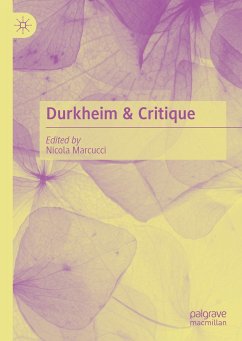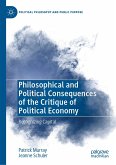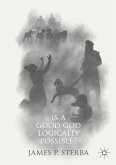This book investigates the relation between Durkheim's sociology, Critical Theory, and the philosophy of social sciences. The book is organized in four sections: confronting Durkheim and other critical traditions; inquiring his social and critical ontology; interrogating the relation between social practices and justice; and discussing his relevance in contemporary politics and political theory. An international group of philosophers, sociologists, and critical theorists contribute to show Durkheim's reflection as an important complement-or an alternative-to the Hegelian-Marxist and post-structuralist conceptions of social critique. In this way, the book intends to inaugurate a new reflection on social critique at the intersection between philosophy and sociological theory.
Nicola Marcucci is a member of the Laboratoire interdisciplinaire d'études sur les réflexivités - Fonds Yan Thomas (LYER-FYT) at the École des hautes études en sciences sociales (EHESS) in Paris, France and he is Hans Speier Visiting Professor in the Department of Sociology at the New School for Social Research, New York, USA.
Dieser Download kann aus rechtlichen Gründen nur mit Rechnungsadresse in A, B, BG, CY, CZ, D, DK, EW, E, FIN, F, GR, HR, H, IRL, I, LT, L, LR, M, NL, PL, P, R, S, SLO, SK ausgeliefert werden.









